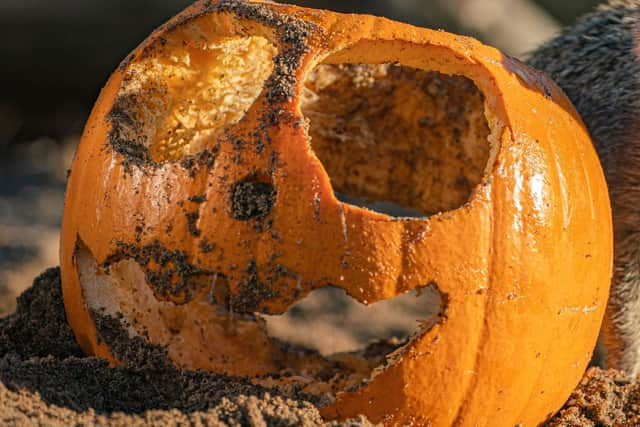Halloween: Clerics debate ethics and origins behind increasingly popular festival
and live on Freeview channel 276
Halloween, a contraction of "All Hallows' evening" is Western Christian feast traditionally dedicated to remembering the saints and the dead on 31 October.
Rev Chris Hudson of All Souls non subscribing Presbyterian Church in Belfast notes that the day before is All Souls Day, which he says is mainly celebrated in the Catholic rather than the reformed tradition.
Advertisement
Hide AdAdvertisement
Hide Ad"And that would be because you visit graves and pray for the souls that are allegedly trapped in Purgatory," he said.


He remembers dressing up as a child and going around knocking on doors for harvest fare of apples and nuts.
"You can see why some of the more fundamentalist churches would object because they say that it's Christians taking part in pagan festivals because you've got witches and ghosts.
"But personally I don't believe there's any danger. It's one of those things where people have an opportunity to step outside reality - like theater."
Advertisement
Hide AdAdvertisement
Hide AdIt is important for children to experience a wide variety of emotions, including fear, he believes.
Halloween is based on a druidic festival in which the dead would come back to visit the living, he affirms. "But I don't think it's possible to contact the dead."
He recalls using a ouija board with friends long ago, but says they moved it entirely themselves and that it poses no danger - "unless an individual psychologically believes the dead spoke to them".
The idea of "a devil as a person is not really something that people subscribe to now" he adds, though he does see evil as very real, evidenced by dictators such as Hitler.
Advertisement
Hide AdAdvertisement
Hide AdBut Rev Stephen Graham, associate minister of Hill Street Presbyterian Church in Lurgan, takes a different view.
He quotes CS Lewis as saying: “There are two equal and opposite errors into which our race can fall about the devils. One is to disbelieve in their existence. The other is to believe, and to feel an excessive and unhealthy interest in them.”
The cleric adds: "Culture wants to point us to some aspects of science that say the world is all that there really is. And yet, at Halloween we see that there's an obsession with the afterlife. Why? I want to say that's because we're spiritual beings.
"Halloween is a time of promoting darkness and the demonic. It has its roots in ancient Celtic tradition - the day of the dead - the blurring of the boundary between this life and the afterlife.
Advertisement
Hide AdAdvertisement
Hide Ad"But for Christians, it is important to remember that Jesus was the opposite. He's the king of life, and he's the king of light.
"He came and silenced the demons and crushed the head of Satan himself as he died on the cross to rescue us from our sin."
He added: "There's really no harm in putting on a mask and a little costume and having some sweets. There's no badness in that. But what we do want to highlight is what is behind the holiday, we have to be cautious with that.
"There is a serious element to Halloween, there is a dark undertone and that is something we don't want to be naive about."